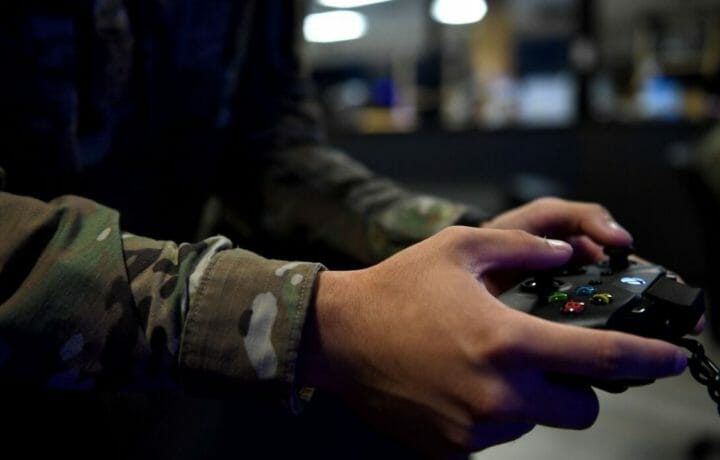If you search cool jobs, you’d be surprised how many different opportunities are out there that you can get paid to do. For some, following the path less traveled means getting paid as a professional sleeper or eater (yes, the internet tells me those are actual paying jobs). But if you’ve grown up playing video or online games, you might be interested in getting to design them for a living. While it might seem impossible to bring national security and gaming together, wargaming and training efforts have for many years made this job a reality. But you can’t just love playing video games and land a job in the national security gaming industry. The contracts are out there, but you do need to have the skills to back up your love of gaming.
What a National Security Gaming Job Entails
The quickest answer to what the gaming field entails is – it depends. It really depends on your technical capabilities and interest. If design focused on meeting learning requirements is your goal, then you’re going to want to take the instructional designer role, with a bent towards modeling, simulation, and gaming. Steer away from simple computer based training contracts, and work towards contractors and projects that will get you tackling requirements that have a little more complexity. However, candidates with software engineer or computer science degrees also fit in well. Multimedia specialists, graphic designers, and information architects all play a key role in meeting all of the gaming program requirements.
If you’re interested in the gaming world, one of the benefits of working with national security is that contracts that support gaming efforts can be found all over the country. From Florida to Texas to Colorado to D.C., the national defense gaming industry opportunities are broad and growing. You can find work at small contractors, as well as employers like Booz Allen, Leidos, Scientific Research Corporation, and Northrop Grumman.
Gaming and the DOD
The DoD’s gaming efforts focus on supporting its warfighters, as well as, training soldiers to be mission ready. Whether that means adding in a mobile game or a full fledged simulation, the field of gaming in national security is wide. It requires researchers willing to push the gaming boundaries for the military, as well as the necessary designers and developers. It even requires program managers. Wherever there are gaps in skills – like cybersecurity, it’s important to introduce gaming as part of our response to filling the needs.
Clearance Considerations
When it comes to national security, a job in gaming is no different from the rest. You’ll need a security clearance if you want this dream to be your reality. Depending on the contract requirements, you’ll need a Secret or Top Secret clearance, and for that, you’ll need to make sure you are lining up with the 13 adjudicative guidelines. Depending on whether you land in the intelligence community or supporting the DoD, your clearance processing times can vary. As many gaming capabilities are focused on responding to adversarial attacks, as well as, building stronger offensive capabilities, it’s clear that a clearance and gaming gig go together in national security.




